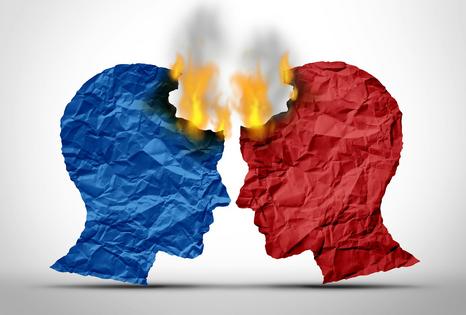Americans agree more than they might think − not knowing this jeopardizes the nation’s shared values
Published in Political News
The United States presents a paradox: Though the media and public opinion suggest it is a nation deeply divided along partisan lines, surveys reveal that Americans share significant common ground on many core values and political issues.
As a political philosopher, I am deeply concerned about the perceived contrast between the public’s shared political concerns and the high level of polarization that is dividing the electorate.
Despite the prevailing narrative of polarization, Americans frequently agree on essential issues.
For instance, there is widespread support for high-quality health care that is accessible to all and for stronger gun-control regulations. Remarkably, many Americans advocate for both the right to bear arms and additional restrictions on firearms.
There is strong support for fundamental democratic principles, including equal protection under the law, voting rights, religious freedoms, freedom of assembly and speech, and a free press.
On critical issues such as climate change, a majority of citizens acknowledge the reality of human-caused climate change and endorse the development of renewable energy. Similarly, support for women’s reproductive rights, including the right to an abortion, is widespread.
Though Republicans tend to be more concerned about the economy when they vote, both Republicans and Democrats rank it highly as a top political priority. Despite a currently strong economy by many standards, however, supporters of both parties believe the economy is performing poorly.
This fact is likely the result of a combination of pandemic-related factors, from reduced spending and increased saving during the height of the pandemic to lingering inflation, partly triggered by the pandemic. Whatever the reason for this shared pessimism over the economy, it clearly helped Donald Trump win the 2024 election.
Overall, Americans have a positive view of immigration. That sentiment has declined in recent years, however, as most Americans now want to see rates of immigration reduced – Republicans more so than Democrats.
Part of the tension in the nation’s thinking about immigration is likely the result of a political culture that favors sensational stories and disinformation over more sober consideration of related issues and challenges. For instance, much of this election’s discourse over immigration was marred by fictional and bigoted accounts of immigrants eating pets and inaccurate portrayals of most immigrants as criminals. It should be evident that even shared political perceptions aren’t always based on good evidence or reasons.
Despite the existence of so much common ground, Americans see the nation as polarized. Shared values and concerns matter little if constant exposure to disinformation makes it nearly impossible for half the population to sort fact from fiction.
The perception of division itself can fuel distrust where common ground might otherwise be found among citizens.
Even with substantial consensus on many issues, the perception of polarization often drives public discourse. This misalignment can be exacerbated by partisans with something to gain.
Research shows that when people are told that experts are divided on an issue, such as climate change, it can lead to increased polarization. Conversely, emphasizing the fact of scientific consensus tends to unify public concern and action.
The perception among U.S. voters that they disagree more than they agree can precede and perpetuate discord. Differing political camps begin to perceive each other as foes rather than fellow citizens.
This continued perception that Americans are more divided on issues than we actually are poses an enormous threat to democracy. The biggest threat is that people begin to see even neighbors and family members who vote differently as enemies. Stress about holiday interactions with relatives who voted differently is reportedly leading some people to cancel family gatherings rather than spend time together.
Yet, Americans are still potential allies in a larger fight to realize similar political aspirations. If people are too busy attacking each other, they will miss opportunities to unite in defense of shared goals when threats emerge. In fact, they will fail to recognize the real threats to their shared values while busily stoking divisions that make them increasingly vulnerable to disinformation.
Recognizing the public’s shared values is an important step in healing political divides. Philosopher Robert B. Talisse has argued that one way to get started might be refocusing attention on community projects that are nonpolitical but bring together people who don’t normally think of each other as political allies.
This might include, for example, participating in civic or sports clubs, or volunteering to help with local community events. These actions are not overtly politically charged. Rather, they are collaborative in a way that supports community identity rather than partisan identity. It is an exercise in rebuilding civic trust and recognizing each other as fellow citizens, and perhaps even friends, without the tension of partisan politics. Once this trust in each other’s civic identity is healed, it can open a door for meaningful political discussion and understanding of each other’s shared concerns.
If we Americans don’t find ways to recognize our shared values, and even our shared humanity, we won’t be able to defend those values when they are challenged.
This article is republished from The Conversation, a nonprofit, independent news organization bringing you facts and trustworthy analysis to help you make sense of our complex world. It was written by: Lawrence Torcello, Rochester Institute of Technology
Read more:
Polarization may phase out of American politics as younger generations shift into power
Think the US is more polarized than ever? You don’t know history
One election victory does not make a new era in American politics − here’s what history shows
Lawrence Torcello does not work for, consult, own shares in or receive funding from any company or organization that would benefit from this article, and has disclosed no relevant affiliations beyond their academic appointment.


































































Comments